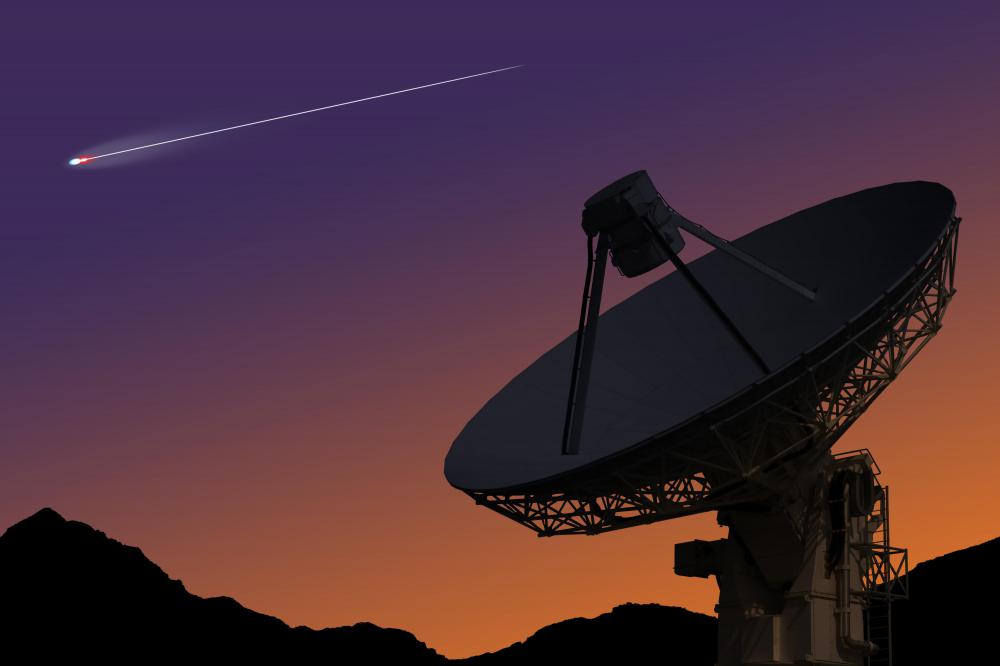At WiseGEEK, we're committed to delivering accurate, trustworthy information. Our expert-authored content is rigorously fact-checked and sourced from credible authorities. Discover how we uphold the highest standards in providing you with reliable knowledge.
What Is a Dark Galaxy?
A dark galaxy is a cluster of dark matter that cannot be visually observed because the matter doesn’t scatter or emit visible light. The presence of such galaxies was hypothesized by physicists and astronomers, who believed the presence of these phenomena was a critical part of some theories explaining the nature of the universe. Tracking them down proved to be a problem because of their invisible nature, but an international team in 2005 managed to identify one with the assistance of a radio telescope. This discovery was a significant development in the field of astrophysics.
According to theorists, much of the universe is actually composed of dark matter, which can create gravitationally bound galaxies that gradually attract more matter over time. At a certain point, they would theoretically reach a tipping point, birthing stars and other objects to create a full-fledged galaxy. Research on galaxies with unusually young stars supports this theory; researchers suspect that these galaxies actually existed for billions of years in a dark matter form.

The collection of gases and matter in a dark galaxy can still act on surrounding objects, which is one way to spot one. Researchers looking for dark galaxies have searched for visible galaxies that behave abnormally, like there is a gravitational pull that might be affecting their shape and size. Another method of looking for these elusive phenomena involves looking for tell-tale signatures with a radio telescope. Although the dark galaxy doesn’t show up in the visible spectrum, the gases it contains can emit radio waves which betray its presence.
In addition to being an item of general cosmological interest, the dark galaxy is an important theory and finding for physicists. Theorists believed they had to exist because they supported the most generally believable model of how the universe formed and continues to change over time. Finding an actual specimen created support for their theories and also explained some phenomena in the universe that wouldn’t make sense if dark galaxies didn’t exist.
Researchers continue to search for more evidence of dark galaxies, using observation of various points in space and careful analysis of data. Each dark galaxy must be confirmed before it can be officially announced, ensuring that observers don’t make an announcement based on faulty or incomplete information. This can be a slow process of international scope as peers check the findings at their own observation facilities and review the methods used in the initial finding.
AS FEATURED ON:
AS FEATURED ON:











Discussion Comments
I'm glad to know people are working on this. It is an important piece in the puzzle -- a part of the whole. The key thing is how dark bodies act in dark space, and the mechanism by which they come into light space. It's all very interesting. Happy discoveries.
Post your comments